Charlie Kirk, the founder of Turning Point USA and relentless voice for conservative values, didn’t emerge from a vacuum.
His worldview – rooted in liberty, faith and a fierce opposition to tyranny – was meticulously shaped by a handful of transformative books.
These aren’t just recommendations; they are the intellectual arsenal that armed Charlie against the cultural battles he waged throughout his life.
From the timeless wisdom of Scripture to searing exposes on totalitarianism and economics, Kirk’s curated list reveals the PILLARS of his philosophy. Drawing from his own endorsements and discussions, here’s a look at the reads that defined him.
Learn how a selection of impactful books shaped Charlie Kirk’s views and inspired his mission in the conservative movement
Whether you are a young activist or a seasoned thinker, these books offer the same clarity and conviction that propelled Charlie Kirk to challenge campuses, conventions, and the status quo.
The Bible is the most powerful, significant, and important book of all time
— Charlie Kirk (@charliekirk11) July 8, 2018
66 books, 40 authors, and 5,000 years of history
Four direct accounts of the most influential person ever to live
Answers to every challenge you will face
So why don’t we teach it in our schools?
🤔
The Holy Bible
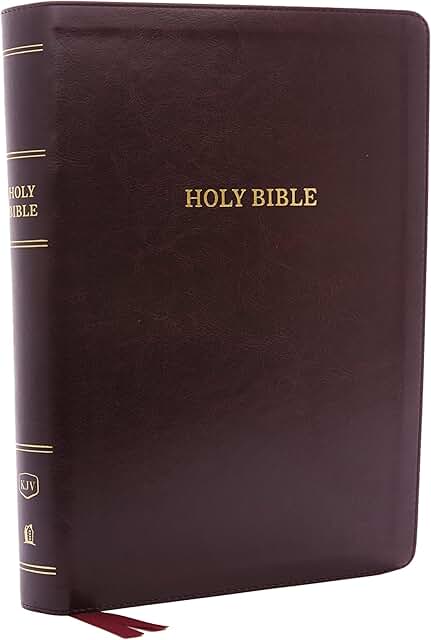
Charlie Kirk repeatedly hailed the Bible as “the most powerful, significant, and important book of all time,” a 5,000-year tapestry of 66 books by 40 authors that provides answers to every life challenge.
It underpins his faith-driven activism and moral compass. (Version: Not explicitly specified in his public statements, but as a conservative evangelical, Kirk often referenced traditional translations; a King James Version.
1984 by George Orwell
Joe Biden's first 2024 campaign ad calls millions of Americans "extremists" and touts his voting rights record… as they are actively kicking Trump off the ballot. George Orwell is rolling over in his grave. pic.twitter.com/CpfgzCpxWj
— Charlie Kirk (@charliekirk11) January 4, 2024
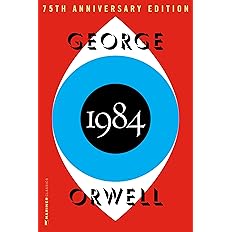
This dystopian classic exposed the dangers of totalitarianism, surveillance, and propaganda, themes Kirk frequently references in his critiques of big government overreach, censorship, and the erosion of personal freedoms.
How 1984 by Orwell affected Charlie Kirk
George Orwell’s dystopian novel 1984 profoundly influenced Charlie Kirk, serving as a frequent touchstone in his critiques of government overreach, censorship, and authoritarianism.
Kirk often invoked Orwellian concepts like “Big Brother” surveillance and “doublethink” to warn against modern threats, such as Britain’s slide into what he called “Orwell’s ‘1984’” amid free speech crackdowns.
This shaped his activism at Turning Point USA, arming him with literary parallels to combat “woke” ideologies and big tech suppression, reinforcing his calls for vigilant patriotism.
Tragically, after Kirk’s murder on September 11, 2025, the book’s themes gained eerie resonance, with commentators drawing on passages from 1984 to frame his death as a symbol of suppressed truth in an increasingly Orwellian world.
Exhibit A.
Discrimination and Disparities by Thomas Sowell
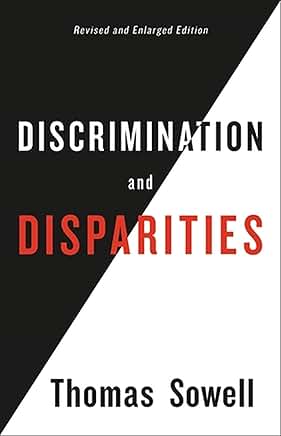
Charlie Kirk debunks myths about inequality
Charlie Kirk praised Sowell’s essays for debunking myths about inequality, using data to show how bad policies—not just discrimination—create divides, sharpening his economic arguments against victimhood culture.
Capitalism and Freedom by Milton Friedman
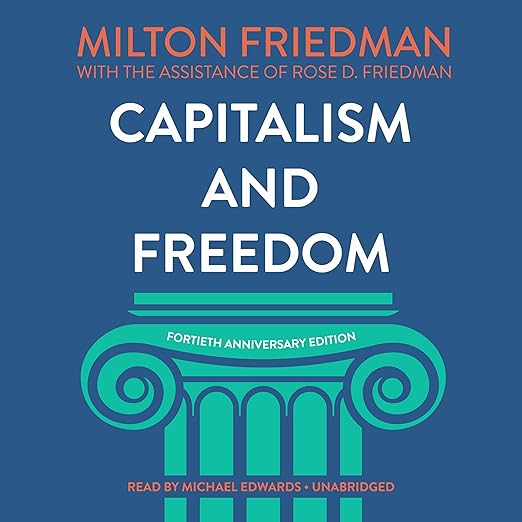
A cornerstone for Kirk, this classic argued that free markets are essential for both economic prosperity and political liberty, forming the backbone of his advocacy for limited government and entrepreneurial spirit.
The Book That Made Your World by Vishal Mangalwadi
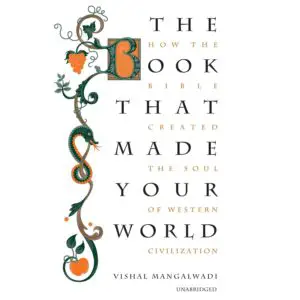
Charlie Kirk credited this work with illuminating how the Bible birthed Western ideals of liberty, science, and morality, directly inspiring America’s Constitution and his belief in God-given rights over state control.
Liberal Fascism by Jonah Goldberg
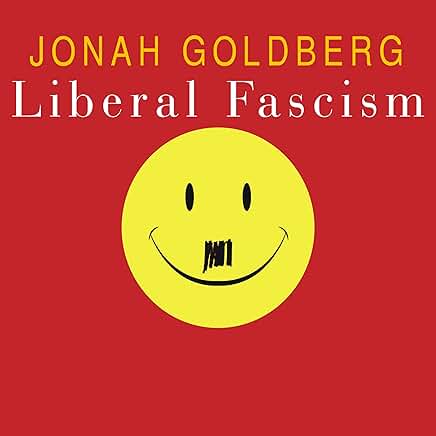
Exposing the left’s fascist roots, this book equipped Kirk to dismantle progressive narratives, revealing historical ties to Mussolini and Hitler that fuel his critiques of modern “woke” authoritarianism.
Man’s Search for Meaning by Viktor E. Frankl
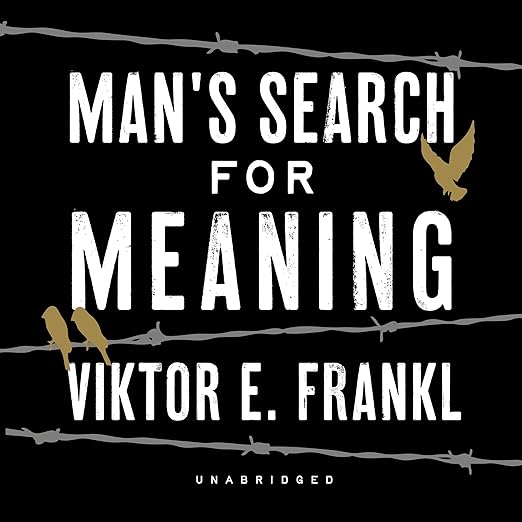
In this 1946 classic, Holocaust survivor Viktor Frankl details his concentration camp ordeals and develops logotherapy, asserting that life’s core drive is finding meaning—via work, love, or attitude toward suffering—enabling resilience in any hardship:
“Those with a ‘why’ can bear any ‘how.'”
How Man’s Search for Meaning Affected Charlie Kirk
Charlie Kirk hailed Man’s Search for Meaning as one of his all-time favorite books, a “very very important” read that shaped his emphasis on purposeful living and intellectual rigor amid cultural wars, aligning with his goal of reading 100 books yearly to fuel conservative activism.
It reinforced his framing of trials as opportunities for defiant meaning, echoing biblical redemptive suffering. After his September 10, 2025 assassination, the book took on deeper resonance, with tributes invoking Frankl’s ideas to celebrate Kirk’s unyielding spirit and inspire youth to seek truth in adversity.
The Gulag Archipelago by Aleksandr Solzhenitsyn
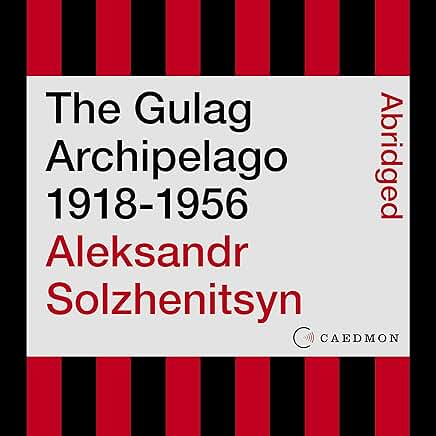
This harrowing account of Soviet labor camps warned Kirk about the horrors of unchecked government power and corruption, reminding him why standing against tyranny—like the Founding Fathers did—is non-negotiable.
The War on the West by Douglas Murray resonated with Charlie Kirk
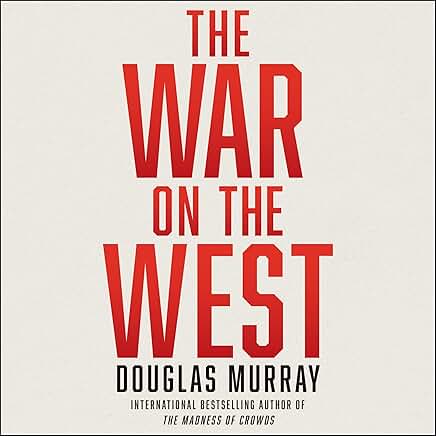
The War on the West profoundly resonated with Charlie Kirk, reinforcing and amplifying his lifelong crusade against what he saw as leftist cultural erosion, and it became a cornerstone in his intellectual arsenal for Turning Point USA’s campus activism.
In April 2022, Kirk dedicated a full episode of The Charlie Kirk Show to interviewing Murray, where they dissected the book’s core thesis: a deliberate “war on Western values” involving the demolition of historical monuments, erasure of “whiteness,” and ideological arson by the left.
A thought crime expose discussion with Charlie Kirk
Kirk’s probing questions and enthusiastic framing—describing it as a “thought-crime” exposé on efforts to “snuff out whiteness in the Western Anglosphere”—revealed how the book sharpened his rhetoric, equipping him with historical parallels to combat “victimhood culture” and promote unapologetic patriotism in debates.
This influence extended to his broader worldview, blending Murray’s secular defense of the West with Kirk’s evangelical faith, as seen in his fusion of biblical resilience (e.g., hating evil per Psalm 97:10) with anti-woke strategies.
Tragically, in the wake of Kirk’s assassination on September 10, 2025—framed by commentators as a stark escalation in the very “war on the West” Murray warned of—the book took on prophetic weight.
Murray himself reflected on Kirk’s “unwavering faith and influence,” portraying him as a martyr who embodied the West’s fighting spirit against ideological purges, much like the cultural threats Murray outlined.
Charlie’s embrace of the book not only fortified his pre-death activism but posthumously elevated his legacy as a defender of Western civilization, inspiring a surge in discussions tying his murder to Soviet-era disinformation and oppressor-oppressed binaries that Murray critiqued.
In The War on the West (2022), Douglas Murray delivers a passionate critique of the internal cultural assault on Western civilization, portraying it as a misguided “reckoning” that vilifies the West’s achievements—such as enlightenment ideals, individual liberties, and scientific advancements—while hypocritically excusing flaws in non-Western societies.
Murray highlights selective outrage, like condemning philosophers such as Kant for historical biases but overlooking similar issues in thinkers like Marx, and argues this narrative is weaponized by adversaries (e.g., authoritarian regimes) to undermine the West. Rather than self-flagellation, he advocates for proud self-correction and defense of Western heritage to counter “woke” overreach and preserve progress.
These selections aren’t random—they’re battle-tested blueprints for navigating a world Charlie saw as under siege by radical ideologies. As he often said on his show and in speeches, reading voraciously (aiming for 100 books a year) hones your debate skills and fortifies your principles.
In a time when truth feels under attack, Kirk’s list is a clarion call:
Arm yourself with knowledge, or risk losing the fight
Charlie Kirk’s Favorite Bible Scriptures
A Testament to Faith Amidst Adversity
Charlie Kirk, the influential conservative leader and founder of Turning Point USA, often drew profound inspiration from Scripture, weaving biblical wisdom into his activism, speeches, and personal life.
While Charlie Kirk shared countless verses across his platforms, those highlighted as his personal favorites—especially in reflections from his wife Erika Kirk and in his final public appearances—reveal a man anchored by themes of sacrificial love, divine purpose, and resilience against evil.
Charlie Kirk’s Favorite Bible Scriptures: A Testament to Faith Amidst Adversity
Charlie Kirk, the influential conservative leader and founder of Turning Point USA, often drew profound inspiration from Scripture, weaving biblical wisdom into his activism, speeches, and personal life. While Kirk shared countless verses across his platforms, those highlighted as his personal favorites—especially in reflections from his wife Erika Kirk and in his final public appearances—reveal a man anchored by themes of sacrificial love, divine purpose, and resilience against evil.
| Scripture | Full Text (NIV) | Why It Resonated with Kirk | Source/Link |
|---|---|---|---|
| Ephesians 5:25 | “Husbands, love your wives, just as Christ loved the church and gave himself up for her.” | This verse embodied Kirk’s commitment to covenantal, sacrificial love in marriage and leadership, a principle he lived out until the end. His wife Erika shared it as one of his absolute favorites during her emotional address after his passing, noting how he “laid down his life” for his family and nation in true Christ-like fashion. | Erika Kirk’s public statement (no direct X post found, but echoed in his faith-centered content) |
| Romans 8:28 | “And we know that in all things God works for the good of those who love him, who have been called according to his purpose.” | Kirk called this a “freeing and liberating” reminder of God’s sovereignty in trials, quoting it hours before his tragic shooting to affirm hope amid chaos. It underscored his belief that even suffering serves a greater divine plan. | From his final speech; see a related X post where he shares themes of divine purpose: Charlie Kirk on trusting God’s plan (Isaiah 26:3–4) |
| John 10:10 | “The thief comes only to steal and kill and destroy; I have come that they may have life, and have it to the full.” | Kirk frequently invoked this to contrast evil’s destructive intent with Christ’s abundant life, fueling his fight against cultural “thieves” like radical ideologies. It was one of the verses he highlighted in a recent video reflection on faith. | Shared in a video; related X post on overcoming worldly tribulation: Charlie Kirk quoting John 16:33 |
| Psalm 97:10 | “Let those who love the Lord hate evil, for he guards the lives of his faithful ones and delivers them from the hand of the wicked.” | This call to boldly oppose evil aligned with Kirk’s unapologetic stance against moral decay, emphasizing God’s protection for the righteous. He shared it as a rallying cry in discussions on faith and justice. | From video reflections; see X post on hating evil through pride’s downfall: Charlie Kirk on Proverbs 16:18 |
| Genesis 50:20 | “You intended to harm me, but God intended it for good to accomplish what is now being done, the saving of many lives.” | Kirk embraced this as a testament to redemption from betrayal, mirroring his own journey from criticism to influence. It reinforced his view that God repurposes evil for salvation. | Video sharing; related X post on God’s new beginnings: Charlie Kirk on Isaiah 43:18-19 |
Kirk’s engagement with Scripture wasn’t abstract—it was a daily weapon in his cultural battles, as seen in his routine X posts quoting verses like Psalm 107:1 (“Oh give thanks to the LORD, for he is good, for his steadfast love endures forever!”) or 2 Chronicles 7:14 on national healing. Even in his final days, these words fueled his message of enduring faith. As Erika poignantly noted, Kirk’s life reflected Ephesians 5:25’s sacrificial ethos, leaving a legacy that calls us to love boldly and trust unwaveringly. In a broken world, his favorites remind us: Evil may strike, but God’s purpose prevails.
Pray for Erika Kirk
Erika Kirk’s full speech at Building a Legacy: Remembering Charlie Kirk@mrserikakirk pic.twitter.com/bTrMLDpJPj
— Turning Point USA (@TPUSA) September 22, 2025
Farewell and Following Seas to the once in a generation Charles James Kirk
Until we meet again…
